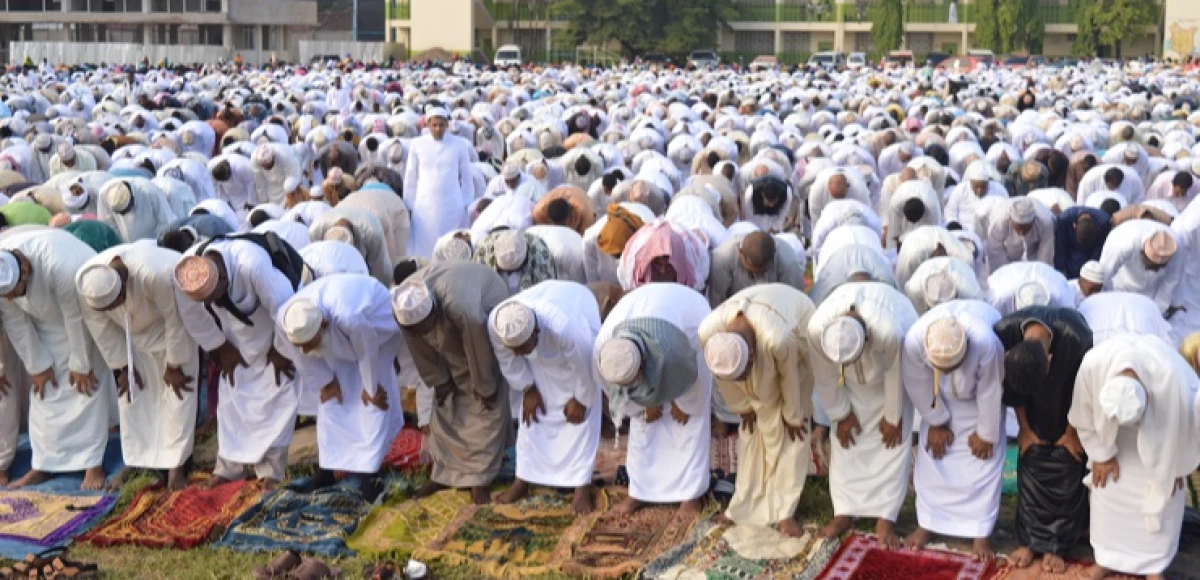What is Eid-ul-Fitr and how do Muslims celebrate it? 6 questions answered

Muslims all over the world are celebrating Eid ul-Fitr, one of the religion’s principal festivals. In July, Muslims will
celebrate Eid al-Adha. Ken Chitwood, a scholar of global Islam, explains the
two Islamic festivals.
Eid literally means a “festival” or “feast” in Arabic.
There are two major Eids in the Islamic calendar per year – Eid-ul-Fitr earlier
in the year and Eid al-Adha later.
Eid-ul-Fitr is a three-day-long festival and is known as the
“Lesser” or “Smaller Eid” when compared to Eid-al-Adha, which is four-days-long
and is known as the "Greater Eid.
The two Eids recognize, celebrate and recall two distinct
events that are significant to the story of Islam. Eid al-Fitr means the feast
of breaking the fast."
The fast, in this instance, is Ramadan, which recalls the
revealing of the Quran to Prophet Muhammad and requires Muslims to fast from
sunrise to sundown for a month.
Eid ul-Fitr features two to three days of celebrations that
include special morning prayers. People greet each other with “Eid
Mubarak,” meaning “Blessed Eid” and with formal embraces. Sweet dishes are
prepared at home and gifts are given to children and to those in need. In
addition, Muslims are encouraged to forgive and seek forgiveness. Practices
vary from country to country.
In many countries with large Muslim populations, Eid al-Fitr
is a national holiday. Schools, offices and businesses are closed so family, friends
and neighbors can enjoy the celebrations together. In the U.S. and the U.K.,
Muslims may request to have the day off from school or work to travel or
celebrate with family and friends.
In countries like Egypt and Pakistan, Muslims decorate their
homes with lanterns, twinkling lights or flowers. Special food is prepared and
friends and family are invited over to celebrate.
In places like Jordan, with its Muslim majority population,
the days before Eid ul-Fitr can see a rush at local malls and special “Ramadan
markets” as people prepare to exchange gifts on Eid ul-Fitr.
In Turkey and in places that were once part of the
Ottoman-Turkish empire such as Bosnia and Herzegovina, Albania, Azerbaijan and
the Caucasus, it is also known as the, “Lesser Bayram” or “festival” in
Turkish.
The other festival, Eid al-Adha, is the “feast of the
sacrifice.” It comes at the end of the Hajj, an annual pilgrimage by
millions of Muslims to the holy city of Mecca in Saudi Arabia that is
obligatory once in a lifetime, but only for those with means.
Eid al-Adha recalls the story of how God commanded Ibrahim
to sacrifice his son Ismail as a test of faith. The story, as narrated in the
Quran, describes Satan’s attempt to tempt Ibrahim so he would disobey God’s
command. Ibrahim, however, remains unmoved and informs Ismail, who is willing
to be sacrificed.
But, just as Ibrahim attempts to kill his son, God
intervenes and a ram is sacrificed in place of Ismail. During Eid al-Adha,
Muslims slaughter an animal to remember Ibrahim’s sacrifice and remind
themselves of the need to submit to the will of God.
Eid ul-Fitr is celebrated on the first day of the 10th month
of the Islamic calendar.
Eid al-Adha is celebrated on the 10th day of the final month
in the Islamic calendar.
The Islamic calendar is a lunar calendar, and dates are
calculated based on lunar phases. Since the Islamic calendar year is shorter
than the solar Gregorian calendar year by 10 to 12 days, the dates for Ramadan
and Eid on the Gregorian calendar can vary year by year.
Eid ul-Fitr, as it follows the fasting of Ramadan, is also
seen as a spiritual celebration of Allah’s provision of strength and endurance.
Amid the reflection and rejoicing, Eid ul-Fitr is a time for
charity, known as Zakat al-Fitr. Eid is meant to be a time of joy and blessing
for the entire Muslim community and a time for distributing one’s wealth.
Charity to the poor is a highly emphasized value in Islam.
Want to send us a story? SMS to 25170 or WhatsApp 0743570000 or Submit on Citizen Digital or email wananchi@royalmedia.co.ke
Comments
No comments yet.


Leave a Comment